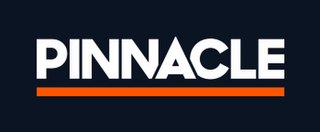
Gambling is the wagering of something of value on a random event with the intent of winning something else of value, where instances of strategy are discounted. Gambling thus requires three elements to be present: consideration, risk (chance), and a prize. The outcome of the wager is often immediate, such as a single roll of dice, a spin of a roulette wheel, or a horse crossing the finish line, but longer time frames are also common, allowing wagers on the outcome of a future sports contest or even an entire sports season.
Spread betting is any of various types of wagering on the outcome of an event where the pay-off is based on the accuracy of the wager, rather than a simple "win or lose" outcome, such as fixed-odds betting or parimutuel betting.
Fixed-odds betting is a form of gambling where individuals place bets on the outcome of an event, such as sports matches or horse races, at predetermined odds. In fixed-odds betting, the odds are fixed and determined at the time of placing the bet. These odds reflect the likelihood of a particular outcome occurring. If the bettor's prediction is correct, they receive a payout based on the fixed odds. This means that the potential winnings are known at the time of placing the bet, regardless of any changes in the odds leading up to the event.

A bookmaker, bookie, or turf accountant is an organization or a person that accepts and pays out bets on sporting and other events at agreed-upon odds.
Betfair is a British gambling company founded in 2000. It operates the world's largest online betting exchange. Its product offering also includes sports betting, online casino, online poker, and online bingo. Business operations are led from its headquarters in Gibraltar, alongside satellite offices in Ceuta, Dublin, Leeds, London, and Malta. In February 2016, Betfair merged with Paddy Power to create Flutter Entertainment.
In probability theory, odds provide a measure of the likelihood of a particular outcome. When specific events are equally likely, odds are calculated as the ratio of the number of events that produce that outcome to the number that do not. Odds are commonly used in gambling and statistics.
Vigorish is the fee charged by a bookmaker for accepting a gambler's wager. In American English, it can also refer to the interest owed a loanshark in consideration for credit. The term came to English usage via Yiddish slang which was itself a loanword from Russian.
In gambling, economics, and the philosophy of probability, a Dutch book or lock is a set of odds and bets that ensures a guaranteed profit. It is generally used as a thought experiment to motivate Von Neumann–Morgenstern axioms or the axioms of probability by showing they are equivalent to philosophical coherence or Pareto efficiency.
Paddy Power is an Irish gambling company founded in 1988. Its product offering includes sports betting, online casino, online poker, and online bingo. Business operations are led from its headquarters in Dublin, alongside a satellite office in Malta. In February 2016, Paddy Power merged with Betfair to create Flutter Entertainment.
A betting strategy is a structured approach to gambling, in the attempt to produce a profit. To be successful, the system must change the house edge into a player advantage — which is impossible for pure games of probability with fixed odds, akin to a perpetual motion machine. Betting systems are often predicated on statistical analysis.

Sports betting is the activity of predicting sports results and placing a wager on the outcome.
Matched betting is a betting technique employed by individuals to profit from free bets and incentives offered by bookmakers. Its proponents considered it risk-free in theory-based probability.
Betdaq is an Irish gambling company founded in 2000. It operates the world's second largest online betting exchange. Its product offering also includes sports betting and online casino. Business operations are conducted from its headquarters in Dublin, alongside a satellite office in Gibraltar.
A tipster is someone who regularly provides information (tips) on the likely outcomes of sporting events on internet sites or special betting places.
Advantage gambling, or advantage play, refers to legal methods used to gain an advantage while gambling, in contrast to cheating. The term usually refers to house-banked casino games, but can also refer to games played against other players, such as poker. Someone who practices advantage gambling is often referred to as an advantage player, or AP. Unlike cheating, which is by definition illegal, advantage play exploits innate characteristics of a particular game to give the player an advantage relative to the house or other players. While not illegal, advantage play may result in players being banned by certain casinos.
An odds compiler is a person employed by a bookmaker or betting exchange who sets the odds for events for customers to place bets on. Apart from pricing markets, they also engage in any activity regarding the trading aspects of gambling, such as monitoring customer accounts and the profitability of their operations.

Pinnacle is an online gaming website that was founded in 1998. Since its inception, Pinnacle has become a medium-sized, fully licensed, online sportsbook. Pinnacle Sports rebranded to Pinnacle on June 1, 2016 after acquiring the pinnacle.com domain name.

Sportsbet is an online gambling company owned by Flutter Entertainment, primarily targeting the Australian market. Sportsbet is licensed as a corporate bookmaker in the Northern Territory under the Racing and Betting Act 1993 (NT).
Flutter Entertainment plc, formerly Paddy Power Betfair plc, is an international sports betting and gambling company. It is listed on the London Stock Exchange, and is a constituent of the FTSE 100 Index, as well as having a secondary listing on the New York Stock Exchange. It owns brands such as Betfair, FanDuel, Paddy Power, PokerStars, Sky Betting & Gaming, and Sportsbet.




